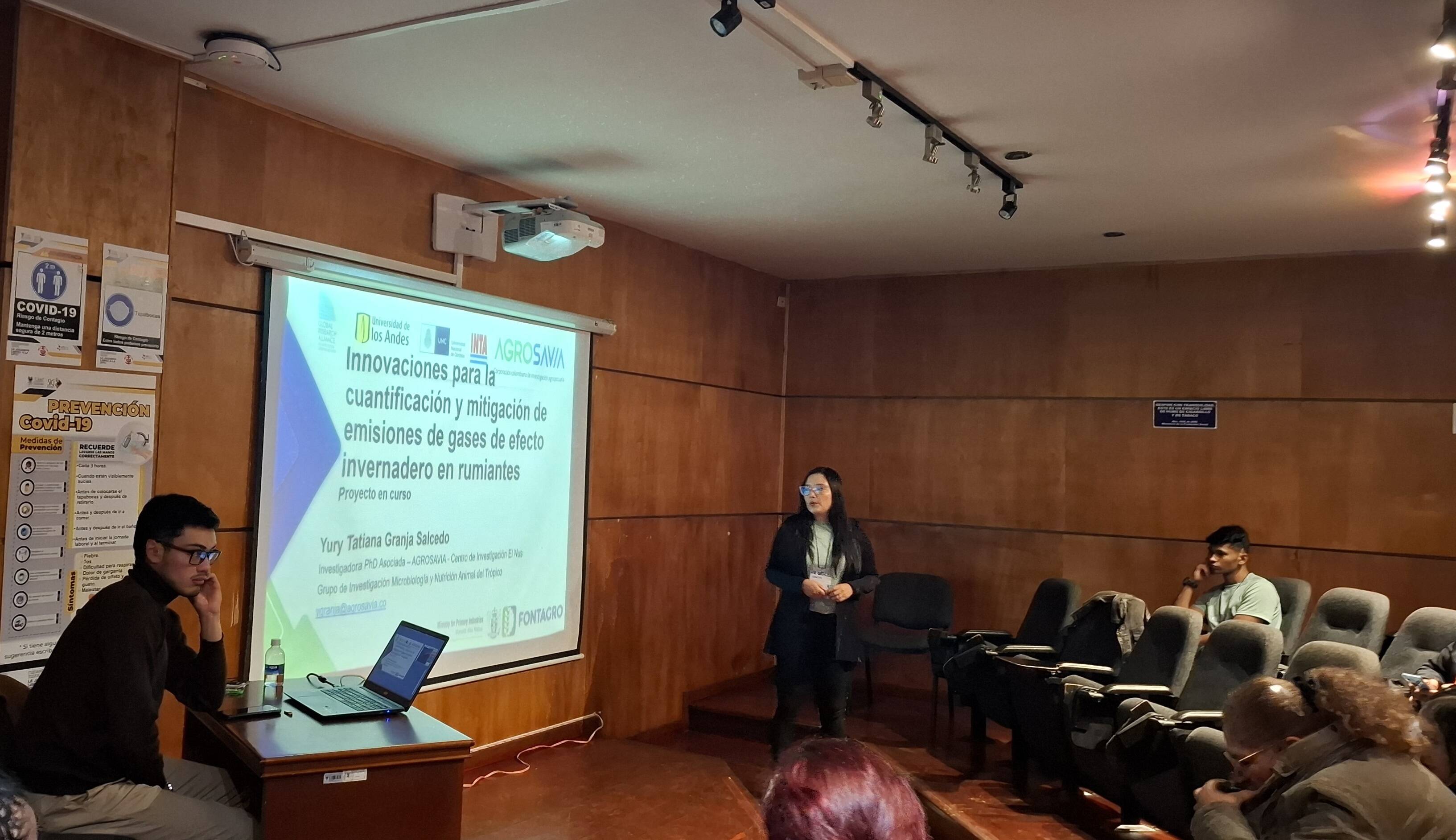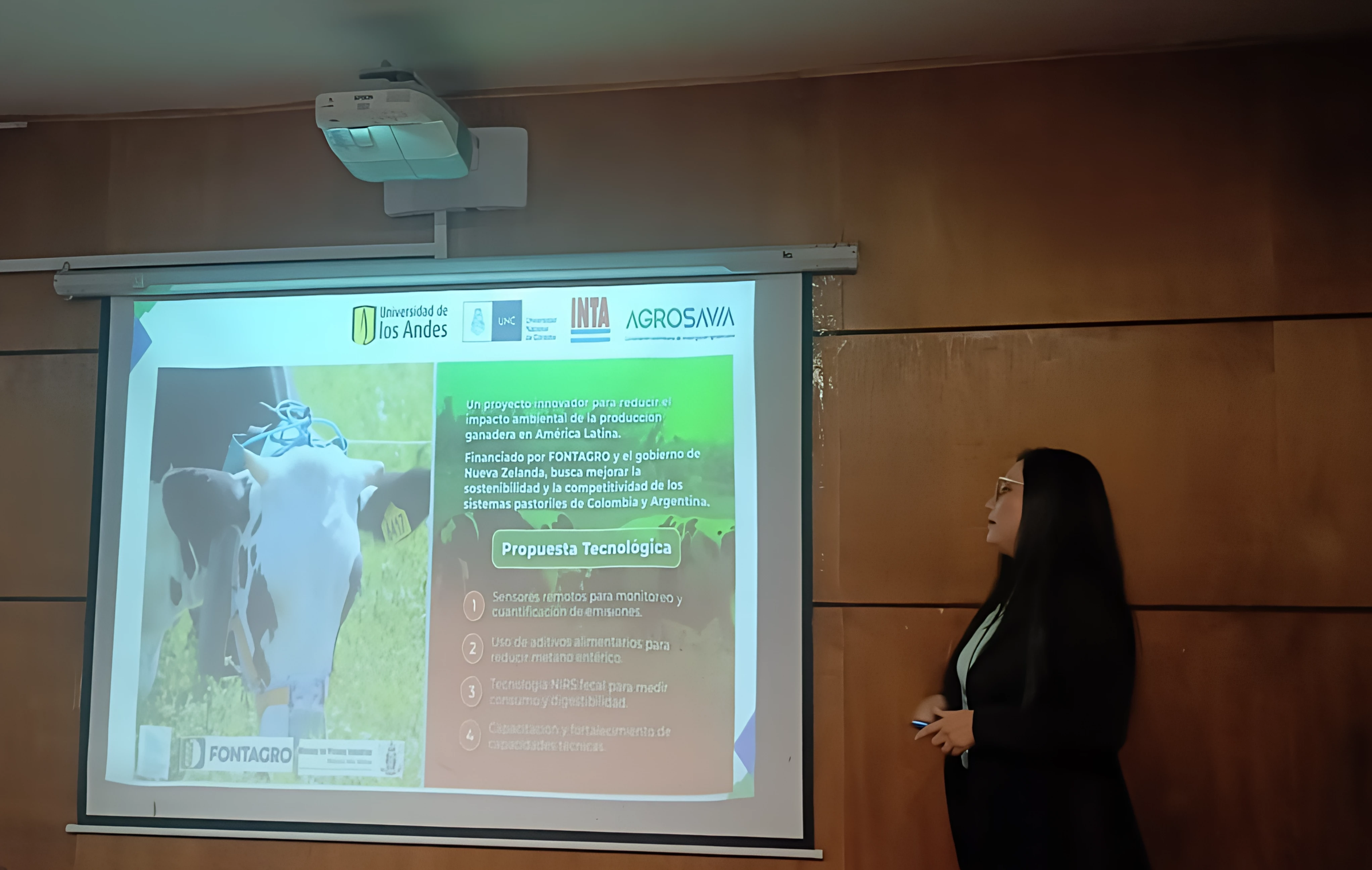The project "Innovations to reduce methane emissions in ruminants" was presented at SENISPA 2024, highlighting technological advances to reduce the GHG emissions in beef cattle grazing in Colombia and Argentina.

The project "Innovations to reduce methane emissions in ruminants" was highlighted during the VIII International and IX National Seminar of Researchers in Animal Health and Production (SENISPA), held from October 8 to 10, 2024 in Tunja, Colombia. This event, organized every two years by the Veterinary Medicine and Zootechnics Research Group (GIDIMEVETZ) of the Pedagogical and Technological University of Colombia (UPTC), brought together researchers from Latin America to share scientific advances in the field of animal health and production. It was attended by around 300 speakers and keynote speakers from Mexico and Colombia.
The presentation was made in the thematic area "Animal Nutrition" category "Project in progress" and addressed the fragility of sustainability in pasture-based livestock systems in Latin America and the Caribbean "There is pressure to reduce the impact that livestock production systems have on the environment accompanied by the increase in demand for meat based on population growth, but 25% of the growing global demand for beef by 2028 is expected to come from our region." said the speaker Yury Tatiana Granja. As a mitigating measure, the implementation of three technological innovations was proposed that will allow real-time evaluation of key variables such as animal consumption, ingestive behavior, digestibility, and enteric methane emissions in grazing cattle.

The expected impacts were highlighted
The great potential of transforming livestock farming in Latin America and the Caribbean was highlighted by improving the accuracy in the quantification of enteric methane emissions compared to IPCC emission factors and reducing the intensity of greenhouse gas emissions in grazing cattle production systems in Colombia and Argentina.
The project has the participation of an interdisciplinary team made up of researchers from AGROSAVIA, the University of the Andes, the National Institute of Agricultural Technology (INTA), and the National University of Córdoba. The collaboration between these institutions reaffirms the commitment to generating innovative solutions that positively impact livestock production and environmental sustainability in the region.
Learn more about this initiative in the following video




